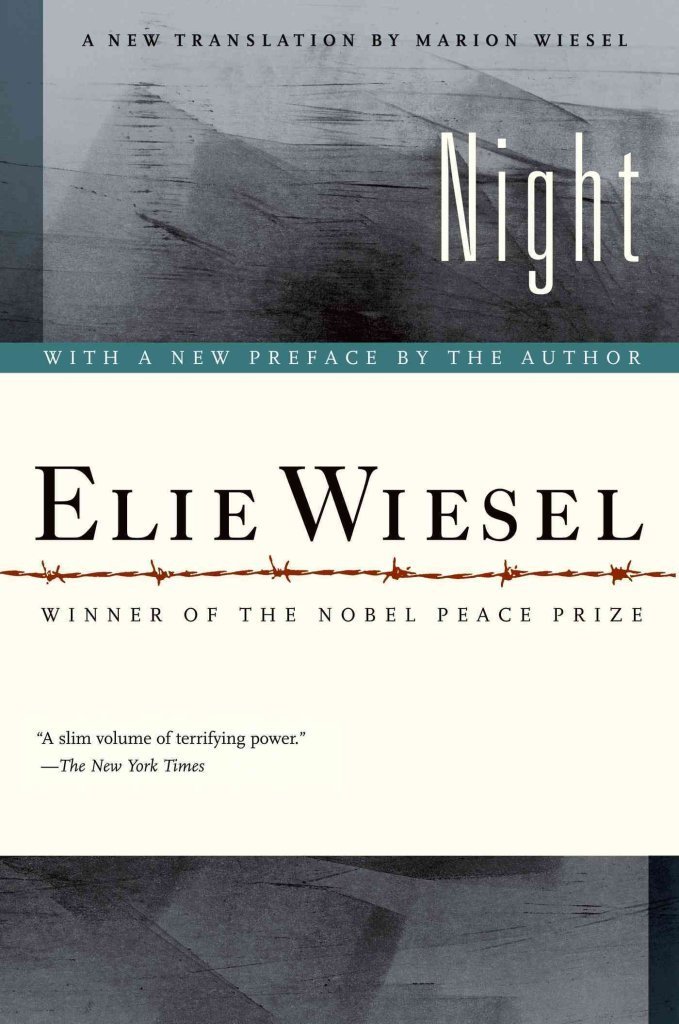In the annals of history, few events are as harrowing and tragic as the Holocaust, and Elie Wiesel’s memoir, “Night,” stands as a powerful testament to the horrors endured during this dark period. Born in Transylvania, Elie Wiesel was just a teenager when he and his family were forcibly taken from their home and sent to Auschwitz and Buchenwald concentration camps. “Night” serves as a chilling record of his experiences, documenting the death of his family, the loss of his innocence, and his struggle to confront the absolute evil of humanity. This blog post delves into the profound impact of this masterpiece, taking into consideration readers’ reviews while attempting to capture the essence of this powerful narrative.
Unveiling Absolute Evil:
Elie Wiesel’s “Night” is an unflinching portrayal of the Holocaust, depicting the unimaginable suffering and cruelty inflicted upon innocent lives. As readers follow the protagonist’s journey, they are confronted with the stark reality of Auschwitz and Buchenwald, where humanity seemed to crumble under the weight of hatred and violence. Wiesel’s unapologetic portrayal of the atrocities serves as a stark reminder that we must never forget the depths of human depravity to prevent history from repeating itself.
A Journey of Despair and Resilience:
Through “Night,” Elie Wiesel takes readers on an emotional rollercoaster, leading them through despair, hopelessness, and heartbreak. The author’s deeply observant Jewish faith becomes both a source of solace and a point of conflict, as he grapples with the idea of God’s existence amidst such unfathomable suffering. However, amidst the darkness, the memoir also highlights the resilience of the human spirit, as Wiesel finds strength to survive despite witnessing the worst of humanity.
The Impact on Modern Readers:
Many readers have found “Night” to be a transformative and eye-opening experience. The memoir’s vivid prose and unfiltered honesty make it a hauntingly compelling read that lingers in the mind long after the final page. For some, the book has served as an awakening, challenging their perceptions and prompting introspection about the capacity for good and evil within each individual.
Contemplating the Incomprehensible:
Numerous reviews mention the difficulty of comprehending the full extent of the Holocaust’s horror. While Wiesel’s narrative offers a glimpse into the unimaginable, readers acknowledge that experiencing the events themselves would be beyond anyone’s capacity to bear. Nevertheless, “Night” serves as an essential conduit to understanding this dark chapter in human history and underscores the importance of remembrance and education.
A Call to Responsibility:
Elie Wiesel’s memoir stands as a poignant reminder that humanity must take responsibility for preventing and addressing atrocities. The author’s message, “Our lives no longer belong to us alone; they belong to all those who need us desperately,” resonates deeply, urging readers to act as their brothers’ and sisters’ keepers to prevent such horrors from happening again.
The Power of Witnessing:
Wiesel’s decision to bear witness through his writing is an act of courage and compassion. By sharing his experiences, he grants a voice to the countless victims who could not tell their stories. Through this act of remembrance, Wiesel immortalizes the souls lost during the Holocaust and ensures that they will never be forgotten.
Reflecting on Faith and Humanity:
Elie Wiesel’s struggle with faith in the face of such evil is a central theme in “Night.” The author’s candid exploration of his own doubts and the loss of his innocence invites readers to question their beliefs and confront the dark side of humanity. The haunting question arises: How does one maintain faith and hope in a world marred by incomprehensible cruelty?
A Literary Masterpiece:
“Night” is hailed as a literary masterpiece for its powerful storytelling and emotional depth. The eloquence of Wiesel’s writing, combined with the profound impact of his experiences, has left an indelible mark on readers worldwide. The memoir’s ability to evoke such intense emotions has cemented its place as a classic that transcends time and cultural boundaries.
Final Thoughts:
Elie Wiesel’s “Night” is more than just a memoir; it is a testament to the strength of the human spirit and a stark warning of the consequences of unchecked hatred. Through his haunting narrative, Wiesel implores readers to remember the atrocities of the Holocaust and strive to create a world free from such horrors. “Night” serves as a beacon of hope, inspiring individuals to stand against evil and embrace their responsibility as global citizens. Let us heed this call and ensure that the lessons of “Night” are never forgotten.

